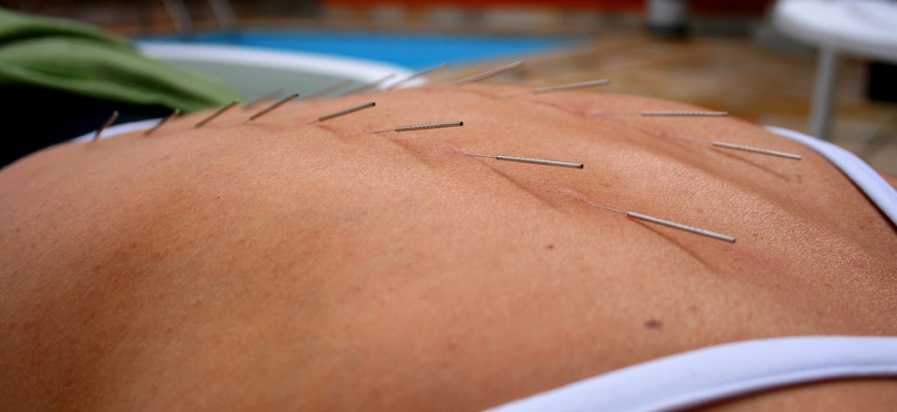
Photo by Boemski [flickr.com/ggvic]. License https://creativecommons.org/licenses/by/2.0/
What is acupuncture?
Acupuncture is a branch of traditional Chinese medicine. It involves the use of thin stainless-steel disposable needles at one or more points on the body. Acupuncture treats and prevents disease, stops pain, and promotes well-being.
Does acupuncture hurt?
No. Acupuncture is painless. The needles are very thin, and much smaller than the hypodermic needles used for injections.
Although it is generally painless, acupuncture may cause a mild achiness or “heavy” feeling around the needle. This is normal, and acupuncture is still quite comfortable. In fact, getting acupuncture is very calming, and many patients fall asleep during treatment.
How does acupuncture work?
Acupuncture works by relieving tension and restoring tone to muscles and other connective tissues. It also relieves stress on the neuroendocrine system to revitalize body and mind, including internal organs. The systemic effect of acupuncture is the reason for its broad application in the following categories and more:
-
- Reproductive health
- Anxiety and stress
- Pain, injury and orthopedics
- Digestion
While acupuncture can be described as causing a non-specific healing response (i.e. having a global effect on the overall function of the body), processes that react positively include cardiovascular circulation, nerve conduction and pain signaling, hormone secretion, inflammation, and the stress response. The cardiovascular, nervous and lymphatic systems are affected by the connective tissue planes through which they pass, that are defined by acupuncture channels (or meridians).
One effect of acupuncture that is often cited, but not the sole factor in healing, is that it causes the release of endorphins. While the endorphin response can explain some of the pain-relieving effects, it does not account for all the other positive functional changes that acupuncture elicits.
Is acupuncture safe?
Yes. Acupuncture has been practiced safely for at least two thousand years of recorded history.
Several authorities attest to the safety of acupuncture, if performed by a licensed and qualified practitioner. These include the National Institutes of Health [1], World Health Organization (WHO) [2], British Medical Journal [3, 4], and the Annals of Internal Medicine (journal) [5], in addition to other independent studies [8].
How long is an acupuncture treatment?
There are different styles of practice, so treatment times may vary. At Balingit Acupuncture, life is taken in stride. There is no rush, and treatments typically last 40 minutes to an hour.
How many treatments will I need?
The number of treatments varies depending on the duration and severity of your condition, in addition to your overall constitution. Typically, acute conditions (recent onset of complaints) require about 4-6 consecutive treatments (1-2 treatments per week). Some patients get significant relief after only one treatment. Chronic (long-term) and more severe conditions usually require more treatments.
Since acupuncture also helps prevent disease, maintenance treatments are beneficial.
